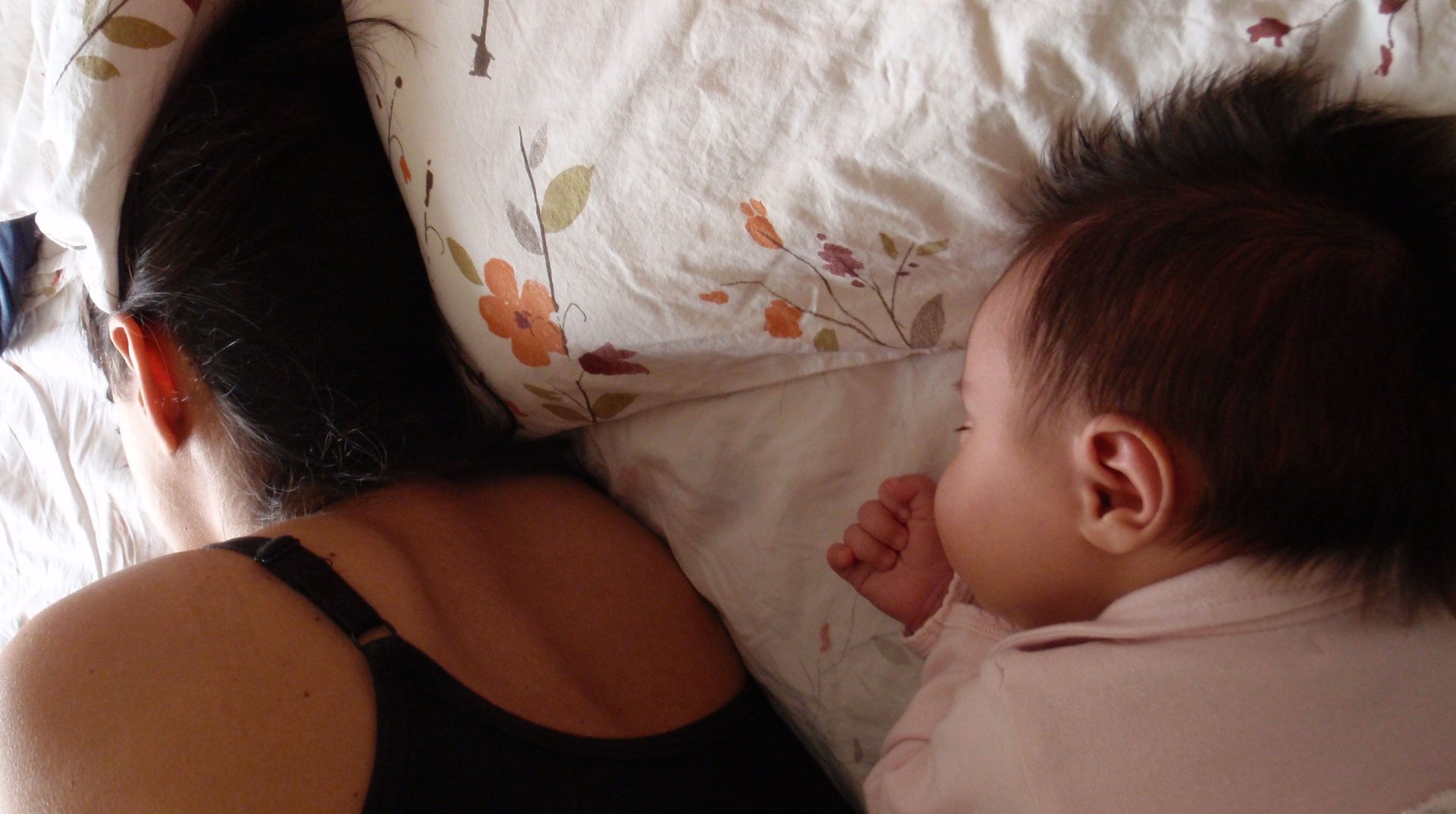The most important lesson I learned about motherhood? Be more selfish
When I was (much, much) younger, I thought the word “egalitarian” literally had something to do with eagles. Now, as a grown woman with young children of my own, I’m still sort of convinced this is true: Egalitarianism is a beautiful, but rare, breed.


When I was (much, much) younger, I thought the word “egalitarian” literally had something to do with eagles. Now, as a grown woman with young children of my own, I’m still sort of convinced this is true: Egalitarianism is a beautiful, but rare, breed.
I’ve long prided myself on advocating for equal footing throughout my academic and professional careers, as well as within my personal relationships. I rarely perceived any significant setbacks in my quest for gender equality. That is, until I became a mother. Once I assumed the role of primary caregiver to small humans, the concept of egalitarianism flew out the window. And that was (and still is) a difficult truth to swallow.
This isn’t to accuse my husband of failing to make an effort. His strong work ethic enables us to live a comfortable lifestyle. He changes diapers on the weekends and has even braved the grocery store alone with both kids. And I certainly appreciate his efforts–even more than he knows.
But there is no denying that the vast majority of all things parenting falls to me, even as I juggle working from home. I’m not just talking about direct child care. There are also the supporting roles that come with parenting: household chores (how can two little children create such big messes?), endless loads of laundry, thrice-weekly trips to the grocery store, meal prep and cooking—not to mention the emotional labor that child-rearing entails. The list goes on and on.
How did I—a feminist with a feminist husband—succumb to such a gendered role? A confluence of systemic social norms have each played a hand. Pervasive gender expectations take hold early in life and devaluate women’s work. Together, they help ensure that women are designated as default–and unpaid–caregivers.
Indeed, the vast majority of primary caregivers in the US are women. According to the American Psychological Association, as many as 68% of caregivers are women. And while men also provide assistance, women spend more time providing care than their male counterparts (21.9 hours compared to 17.4 hours per week).
Of course, being a caregiver doesn’t necessarily equate to being a parent, or even to being a member of a two-parent household. But a recent Pew Research study, which specifically examined the division of parenting and household responsibilities between moms and dads, echoes the APA’s findings. It found a “significant gender gap” in how mothers and fathers describe their distribution of household labor, with women shouldering the brunt of it.
But these statistics don’t capture the complex emotions and relationship dynamics that accompany such lopsided roles. The resulting frustrations and resentments are, unsurprisingly, shared experiences among moms. Even Sheryl Sandberg, the billionaire COO of Facebook and a vocal feminist, has admitted to struggling with her role at home: “The great majority of child care fell to me. The division of labor felt uneven and strained our marriage.”
Amen, Sheryl. It is incredibly hard not to cave to feelings of resentment when I think about my husband putting his education and career training to work, enjoying lunches out and the occasional happy hour with colleagues, all while my Master’s degree gathers dust and the most adult interactions I have on a regular basis occur during preschool drop-off.
But more maddening than these minor jealousies is the lingering sociocultural expectation that I’m supposed to sacrifice anything and everything to do anything and everything for my family, simply on account of being female.
I love my children, but I’m so much more than a mother. I have career aspirations, passions and interests that have absolutely nothing to do with my kids. This is something I regrettably forgot with the birth of my first child. My mental health and my marriage suffered for it. As a second-time mom, I now practice being mindfully selfish, and would encourage other mothers to do the same.
Shrugging off the expectation that I’m supposed to be all about that mom life all the damn time has been incredibly liberating. I also believe it makes me a better person. I now make a concerted effort to carve out space for myself, whether that’s dining out with friends, retreating to my bedroom with a good book while my husband clocks in for daddy duty, or sweating it out at the gym.
We’re all reaping the benefits of my selfishness–which should more accurately be called self-preservation. I’m more patient with my children. They are learning to respect my rights as an individual. And the changes have led to more gender equality within my home. My husband spends more time with the littles and, at least on the weekends, we split errands 50/50. I can only hope that witnessing an increase—no matter how incremental—in shared duties will help my children realize that gender expectations are rubbish.
Lesson learned? As much as it’s up to the non-primary caregiver to help level the playing field by picking up slack whenever possible, it also falls to the primary caregiver (so often known as Mom) to demand time and space to indulge in personal pursuits. If not for our own sanity, for the sake of gender equality.
If it helps, try repeating this mantra: “Put on your own oxygen mask before assisting others.” Seriously, it works.